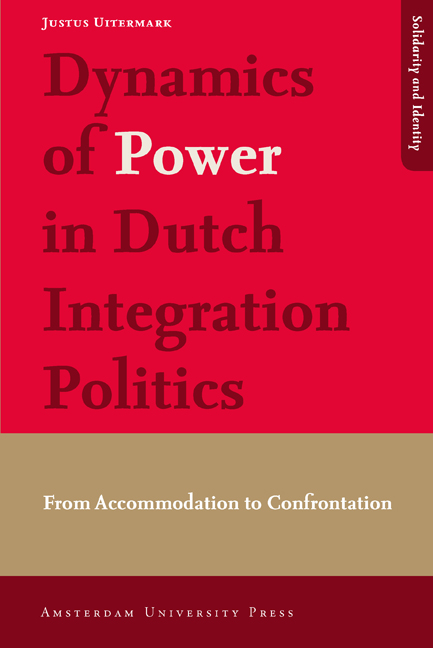9 - Diversity Management and the Gentrification of Civil Society: Civil Liberalism in Amsterdam in the 1990s
Published online by Cambridge University Press: 15 January 2021
Summary
A new discourse on ethnic diversity and its governance was in the making while the institutions of ethnic corporatism were corroding. This discourse revolved around the notion of “diversity” and was premised on the idea that a diverse population presents opportunities, not only problems. This chapter locates the origins of this discourse and examines how it was institutionalized within government policy. The popularity of the Diversity Discourse needs to be understood in the context of the broader shift away from ethnic corporatism towards civil liberalism. This chapter identifies the main features of civil liberalism and examines the power relations inherent in it. Although the Diversity Discourse promised to value all citizens and to recognize their complex identities, in practice the government selectively incorporated partners who could help to produce positive images of diversity and multicultural society. However, growing anxieties over integration aggravated the contradictions of civil liberalism and forced the government to reconsider the ideas, notions and symbols of the Diversity Discourse.
The formation of civil liberalism
Amsterdam in the 1990s was the mirror image of Amsterdam in the 1980s. Unemployment was declining rapidly, the middle classes were buying their way into gentrifying inner-city neighborhoods, and social programs and repressive measures were ridding the streets of drug users and the homeless. The squatting movement had contracted, students were more interested in affirming rather than challenging the status quo, and the presence of anarchist and far-left political parties within the city council had become marginal. Amsterdam had become a much safer and a much more boring place.
Like other cities, Amsterdam came to see itself as an actor in the international marketplace (Hall & Hubbard 1998; Harvey 1989). Through city marketing campaigns and prestigious urban development projects, the city advertised itself to international investors and tourists (see Hajer 1989; Oudenampsen 2007; Ter Borg & Dijkink 1995). There was never an ideological break with the idea that the government was responsibile for the welfare of all its citizens, but administrators increasingly felt that this goal could only be reached if it devoted more energy and resources to attracting mobile capital. The population increasingly came to be seen as a stock of human capital that the government needed to valorize.
- Type
- Chapter
- Information
- Dynamics of Power in Dutch Integration PoliticsFrom Accommodation to Confrontation, pp. 185 - 200Publisher: Amsterdam University PressPrint publication year: 2013



